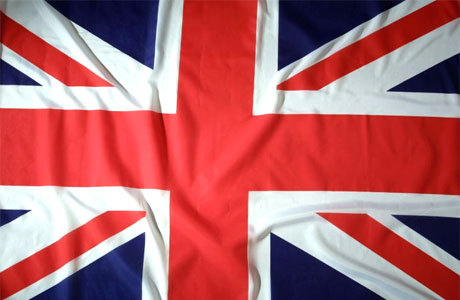 What is it about the British and flag waving? I ask after watching last night’s
superlative BBC Proms, a brilliant end to the best season for years. On HD and wired to the hifi, it was all the better. As the end approached, my Czech mother-in-law asked: if this is Britain’s
flagship musical event, why are there so many foreign flags?
What is it about the British and flag waving? I ask after watching last night’s
superlative BBC Proms, a brilliant end to the best season for years. On HD and wired to the hifi, it was all the better. As the end approached, my Czech mother-in-law asked: if this is Britain’s
flagship musical event, why are there so many foreign flags?
It’s hard to explain. Britain has a mutating relationship with flags and nationality. Twenty years ago, the Union flag was used in England matches, then devolution came and the St George’s cross made an emphatic comeback. I’m sure I saw a Cornish flag last night, and at least one Saltire, so part of it is regionalisation.
But then we must consider what I call the Wimbledon phenomenon – a very English tournament where we supply the venue and the trophy but seldom the winners. In many ways, we have a Wimbledon economy: the City, for example, has soaked up talent worldwide and foreigners have many of the top jobs. Compare this to Wall St. where the heads of the firms are invariably American.
It’s a cultural thing, and we Brits do better by being less hung up about it. When Bob Diamond was named the new head of Barclays last week, the Wall St Journal couldn’t get over the fact that an American was about to run a major British bank; the British press was fixated with the size of his bonus and hardly mentioned his nationality. Different countries, different sensitivities. But British are, and always have been, more at ease with foreigners. We’re the only country in Europe to manage mass immigration without a far-right party in parliament or with any sizeable share of the vote. Brits are, I firmly believe, the most tolerant people on earth. Empire made us the original multi-ethnic state.
And we don’t really wave flags, except during football tournaments and on the Last Night of the Proms. There is something inherently understated about being British, to the frustration of politicians who try to drum up some cheerful ‘national day’. Our national day is Remembrance Sunday.
When our culture minister Ed Vaizey tweeted about all the flags, saying that “no other country’s national celebration would be so international”, I at first suspected that the BBC had stage managed them – given how the punters in Hyde Park were waving British flags, or the flags of countries created when Britain really did rule the waves (New Zealand, Australia etc). But the more I think about it, the more sense it makes.
In what way would the variety of flags on display last night be unrepresentative? Not of the performers. Nor the music: Russian, French, German. And certainly not of the audience. Go to any event at the Albert Hall and I suspect it’s at least a half foreign-born. A third of Londoners are foreign-born. And every second baby in London is born to an immigrant mother (and this is not a complaint – my own sons are amongst them).
I know Coffee Housers have a variety of views about immigration, but London’s wonderful diversity is one of the main reasons I love the city. Like New York, it has a melting-pot character. I know this is a lot better for those who employ immigrants (as barmen, plumbers, nannies, etc) than those who compete with immigrants for jobs. It has its downsides, as well as upsides. But one such upside is that Britain’s capital has become the new Rome of the globalised world – with incredible music on offer, and we’ve probably overtaken New York as the world’s capital of visual art. As Joseph Roth said about pre-war Berlin, the City has become its own capital. London’s musical and cultural scene is so vibrant precisely because it houses the world’s talent. And this is why all those flags make sense: because to be British is to embrace the world.
PS: For those who missed it, below was my highlight: Benjamin Britten’s sublime arrangement of God Save the Queen, which I’d never heard before. Thanks to CoffeeHousers who supplied the link.







Comments